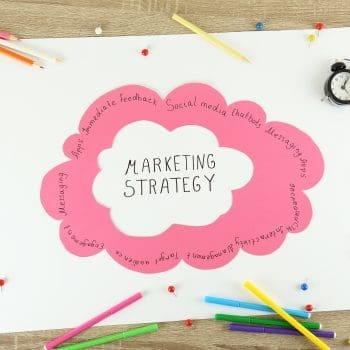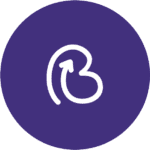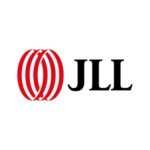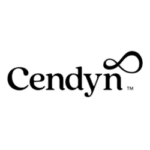
Have you read the latest Industry Journal: Marketing and Distribution 2020? The below article and more insights are available here.
I can’t even begin to remember the number of times I have heard hoteliers talk about the need to get more direct business, preferably through their own hotel websites. Of course, this is something we want for all our hotels. We know that direct sales bring a higher margin to the bottom line, rather than via reservations (with commission) to third party distributors like OTA or low net rate wholesalers and tour operators.
The big guys already include social media as a major part of their marketing plan. Small hotels don’t have the same marketing budget large hotels do. Sometimes there is no marketing budget at all. It’s important that small hotels take advantage of every opportunity they can get to promote the property, starting from digital marketing. The golden age of hotel digital marketing can be a huge advantage for small hotels and if you are a smaller hotel without the resources of a national advertising budget, you need to go all in on digital advertising.
So how can small hotels capture the attention of prospective guests using digital marketing?
Responsive websites
Nowadays, we live in a mobile-driven world. That means that small hotels need to put mobile first when it comes to email marketing as well as web design. A responsive web design (RWD) takes a mobile-first approach to ensure web content properly scales on devices of varying sizes.
By creating a consistent and creative display, RWD helps to prevent frustrating users. Start by investing in a responsive website – too obvious and easy (cheap too in any other industry). But guess what? Many hotels still don’t have them. Creating a static or promotional web site will drive skeptical guests to competitors. On the other hand, intuitive and unique web sites can infuse your brand. Use your website to show off your property and focus on what makes you different in the market. Then add in design elements like Call-to-Actions and photo galleries.
Social media
Running creative ad campaigns on social media can also be extremely effective and inexpensive. Social media sites such as Facebook, Instagram, LinkedIn, etc., can have a massive impact on hotels. There can be a connection with their past, present and potential guests via interactions, contests, special offers and feedback.
Small and mid-sized hotels must learn the art of balancing their post usage. Inactive posts are boring and dated, but overzealous postings many times a day, bombarding guests with useless information is equally counterproductive. Balance and creativity is required.
Initially the existing data of customers can be used as a basis for hitting the target market. Afterwards as the campaign runs, you will be able to obtain more data and refine the messages to the desired audience. Special offers and discounts can be promoted to entice guests to check-in. Encourage guests to post pictures or ‘selfies’ with hash tags in Instagram, Twitter, etc. Create powerful posts where your guests can comment and share their feedback.
There are countless ways to engage with your guests – you just need to think out-of-the-box. Social media channels are not merely for hotel updates. If management believes in social media and allocates the resources, the return is more immediate.
Creative communications
Inbound marketing strategies such as actively engaging on social media and producing fresh content (i.e. blogs and videos) can help small hotels communicate openly with customers and earn their attention. For instance, you may generate engagement from past and prospective guests with a Facebook post by talking about a beautiful excursion near your property. Building engagement with your brand is a first step.
Creating an online guide could be very interesting and attractive. There are many options paid or free (wander guide, etc). Fewer travelers are picking up hotel lobby brochures. However, these people still need advice about what to see and do. In every locale, there are a plethora of things for people to do, so knowing where to begin can be confusing. As part of a digital marketing, you can create some city- related guides to help visitors. Guests like having a guide they can check on their phones.
You can also try multimedia – It is an excellent practice to attract viewers by providing them a virtual tour of your property. Post appealing videos promoting an event or a new space in your hotel or nearby tourist attractions. Come up with inventive ideas and use your videos to your best advantage.
Inbound marketing strategies such as actively engaging on social media and producing fresh content (i.e. blogs and videos) can help small hotels communicate openly with customers and earn their attention. For instance, you may generate engagement from past and prospective guests with a Facebook post by talking about a beautiful excursion near your property. Building engagement with your brand is a first step.
Creating an online guide could be very interesting and attractive. There are many options paid or free (wander guide, etc). Fewer travelers are picking up hotel lobby brochures. However, these people still need advice about what to see and do. In every locale, there are a plethora of things for people to do, so knowing where to begin can be confusing. As part of a digital marketing, you can create some city- related guides to help visitors. Guests like having a guide they can check on their phones.
You can also try multimedia – It is an excellent practice to attract viewers by providing them a virtual tour of your property. Post appealing videos promoting an event or a new space in your hotel or nearby tourist attractions. Come up with inventive ideas and use your videos to your best advantage.
Creating a blog can be life saving. Usually small hotels create a static website waiting for results. A blog has the potential to become a sort of social hang-out or engagement section of the hotel website. As a result, it will help your website to grow its authority on search engines, and eventually direct sales.
Automating your marketing strategy can engage past guests on a one-to-one level in order to encourage them to book directly. A targeted email marketing campaign can be very effective if you gather data from all hotel systems to create a single customer view. Sending automated email interactions to guests during the stay cycle, before and after their stay can create higher click-through rates than undifferentiated messages. Experience-based email offers conversions at a rate double promotional emails. It is essential to create better content for email marketing and retargeting campaigns by building experiential packages with local businesses.
So, do small hotels really need to use digital marketing? A loud YES! Small hotels should actually value digital marketing in all its forms; especially social media since it is the cheapest marketing option. As they cannot spend a lot on marketing and brand building like the big hotel chains, using social media strategically is their best bet for marketing.
Hotel marketing strategies are a vital part of guaranteeing the percentage of occupied rooms stays high. That’s why hospitality digital marketing is so significant. There are countless ways to get the right social media marketing for your property. You can be as creative as you want as it is a free promotional tool. These tools can assist hoteliers in creating a major global presence with powerful impact.
Keep your hotel digital marketing simple and stick to the basics. Get directly involved in the digital marketing for your hotel – it’s definitely worth the effort. You might be surprised when your next guest will come knocking from your social media page!
Discover more digital marketing insights in the latest eHotelier Industry Journal: Marketing and Distribution 2020


















